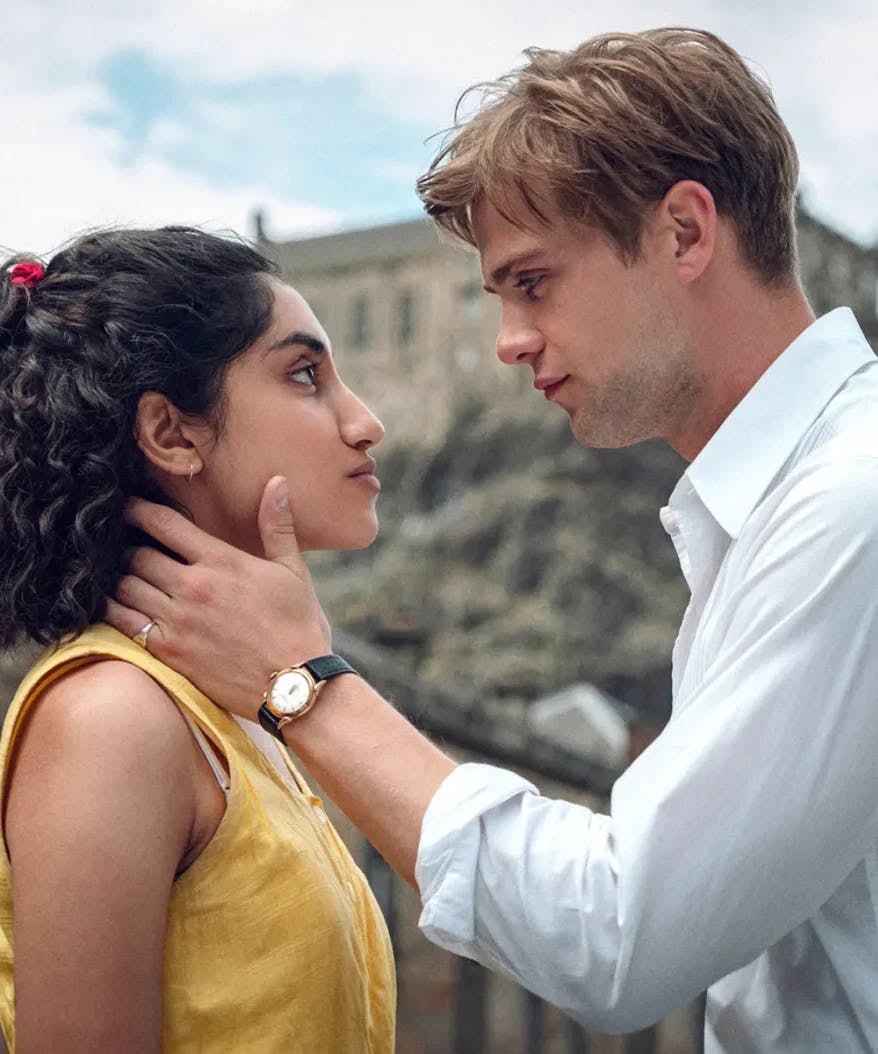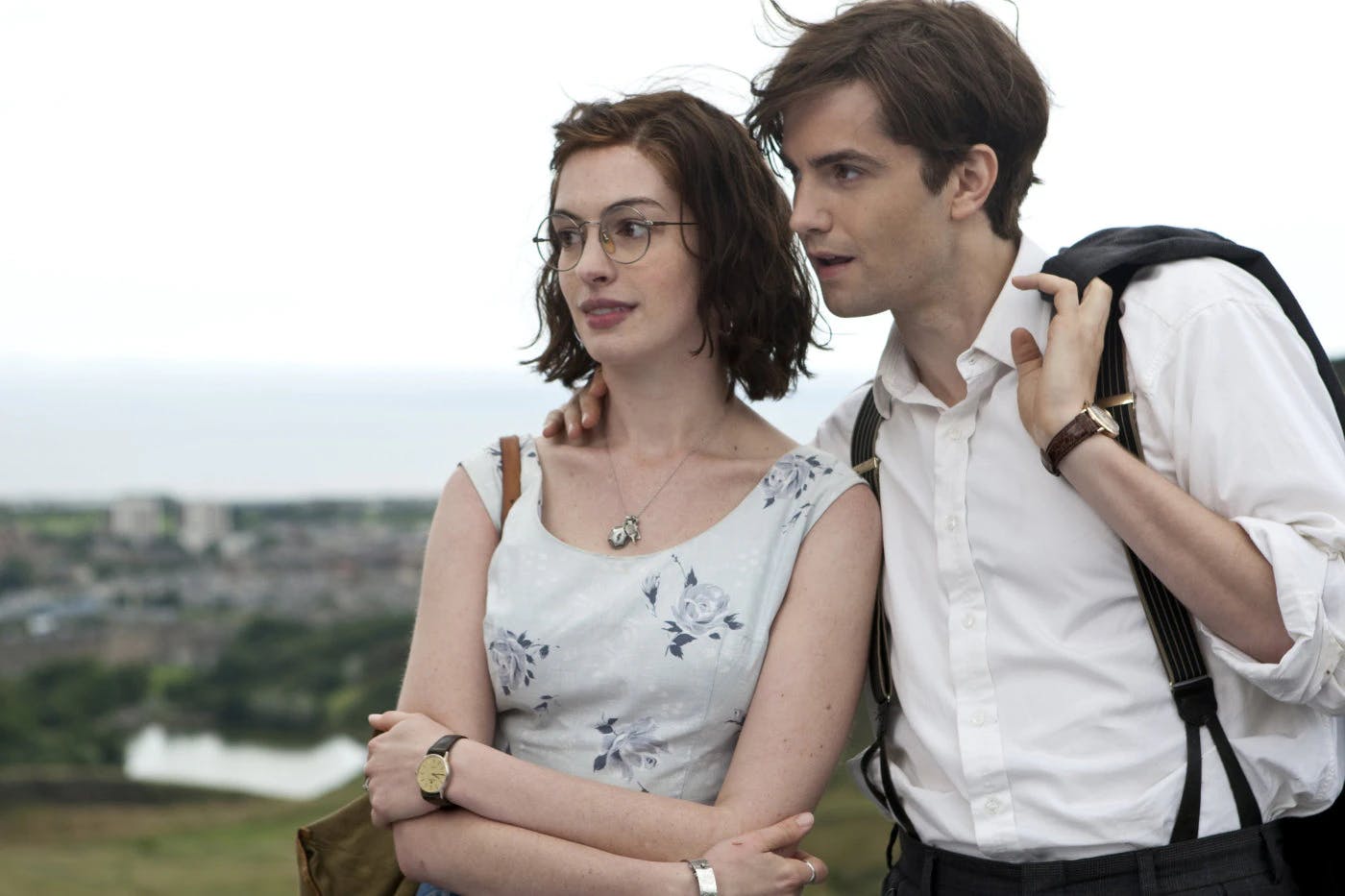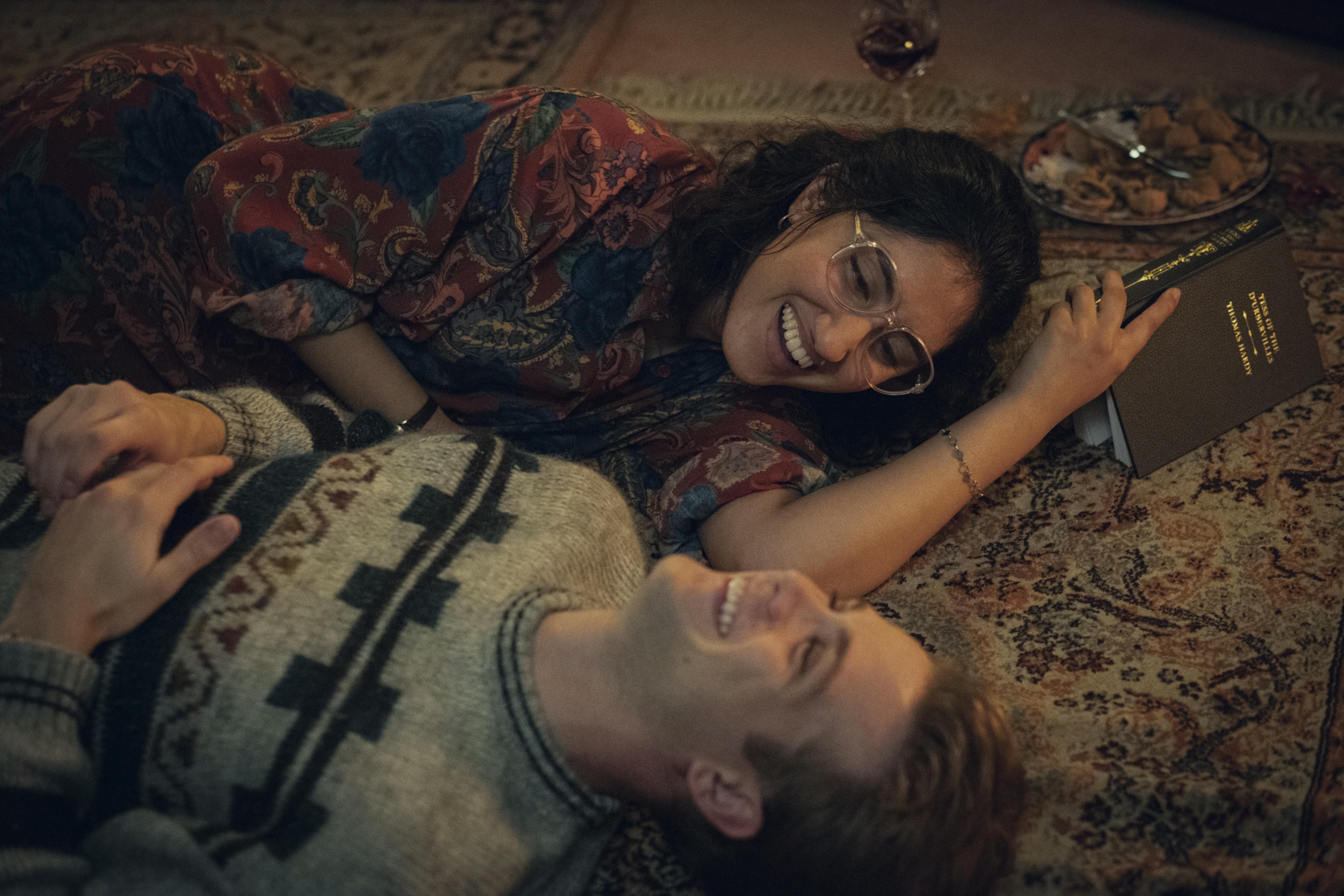Netflix’s “One Day” Is The Right Way To Do A Reboot
We’ve been subjected to some pretty terrible remakes lately, and most people are tired of seeing their favorite movies or TV shows turned into a newer, supposedly shinier model. Even worse, many of these reboots are injected with an insufferably woke storyline that not only takes away from the original magic of the movie but makes it entirely annoying to endure.

Some of the most disastrous remakes as of late include HBO’s revival of Gossip Girl, in which the fabulous main characters are wrestling with their “privilege.” The show lacked the previous character development and instead offered one-dimensional versions that are hyper-aware of wealth inequality (boring). Then, there are all the female-led reboots, which are desperate attempts to shove a feminist stance down the throats of audiences. These new narratives lack tension and complexity, as their inevitable triumphs are devoid of struggle or personal development.
The issue of simplistic character creation in films, particularly regarding the portrayal of "strong female characters," is a multifaceted problem that undermines the depth and relatability of these characters. Central to this critique is the emergence of the "Mary Sue" archetype – a character whose perfection precludes any genuine vulnerability or growth. This archetype is flawlessly competent, embodying an array of commendable attributes such as strength, intelligence, courage, and wit, without any discernible weaknesses. Such characters, devoid of any realistic human frailties, fail to engage the audience on a meaningful level. The prevalence of these woke, one-dimensional characters across cinema not only stifles diversity in storytelling but also perpetuates narrow conceptions of strength and heroism.
So when Netflix announced the reboot of One Day, it was easy to write it off as another disaster waiting to happen, especially when they announced that Ambika Mod, a British Indian actress, would replace the lead that was once performed by Anne Hathaway. Many people groaned and wondered if they were going to try and make a political statement about race and romance. But it turns out, the show was actually better than the original movie – largely because there was no woke nonsense that ruined the storyline.
**Spoilers ahead.**
Netflix’s One Day Reboot Was a Pleasant Surprise
One Day is a novel penned by British author David Nicholls, first published in 2009. This poignant book captures the essence of love, life, and the inexorable flow of time through its unique structure and compelling storytelling. The novel's premise revolves around Dexter Mayhew and Emma Morley, two individuals who spend the night together following their graduation from Edinburgh University on July 15, 1988. This date, St. Swithin's Day, marks the beginning of their complex relationship. The novel cleverly revisits these characters on the same day, July 15, over the course of 20 years, charting their lives, their separate paths, friendships, successes, and heartbreaks, with each chapter unfolding on this singular date. This narrative technique not only offers snapshots of Dexter and Emma's evolving relationship but also provides a window into their personal growth and the changing world around them. Nicholls crafts a tale that is both intimate and expansive, exploring themes of love, timing, and the impact of choice and chance on our lives.
The novel's adaptation into a film, also titled One Day, saw its release in 2011. Directed by Lone Scherfig and starring Anne Hathaway as Emma Morley and Jim Sturgess as Dexter Mayhew, the movie sought to capture the essence of Nicholls' narrative, focusing on the pivotal moments that define Dexter and Emma's relationship over two decades. Anne Hathaway's casting was particularly noteworthy, as her role demanded a transformation through various stages of Emma's life, reflecting the character's growth and changes over the years (although most viewers could never fully recover from her particularly horrific attempt at a British accent).

While the film received mixed reviews, it found a dedicated audience appreciative of its attempt to translate the novel’s emotional depth and narrative structure to the screen. Critics praised the performances, particularly Hathaway's, though some argued the film struggled to fully encapsulate the novel's detailed exploration of its protagonists’ lives. Despite this, One Day achieved moderate box office success and has since maintained a following among fans of the novel and viewers drawn to its bittersweet story of love and timing. The adaptation remains a touching, if imperfect, homage to Nicholls' celebrated work, highlighting the enduring appeal of stories that navigate the complexities of human connections across the unpredictable landscape of life.
On February 8, Netflix released a miniseries of 14 episodes also titled One Day, telling the same tale but featuring two new up-and-coming stars: Leo Woodall (known for his adorable but cheeky role in White Lotus) and Ambika Mod (actress and comedian who starred in This Is Going to Hurt). The show allowed the audience to see a longer, more detailed overview of Dexter and Emma’s love story, with even more beautiful moments and heartaches.

Because the movie came out 13 years ago, most Gen Z audiences were unfamiliar with the story of One Day, so they were seeing it for the very first time. Needless to say, it was a huge hit, and people couldn’t get enough of Dexter and Emma. As of Valentine's Day 2024, One Day had risen to the top of Netflix's viewing charts, captivating 9.9 million households with its engaging story. Following its initial release, the novel has seen a resurgence in popularity, climbing its way back into the bestseller lists. To date, it has reached an impressive milestone, selling more than 3 million copies in the UK alone and 6 million copies globally, across 40 different languages.
There’s no doubt that Woodall and Mod’s performances as Dexter and Emma were at the center of the show’s massive success. The pair portrayed the pains and wins of their characters with gravitas, charm, and depth. Seeing Dexter lose his mother to cancer, struggle with substance abuse, and lose his wife to an affair with his friend and employer was almost too much to handle. But then, after almost 20 years of an intimate though sometimes rocky friendship, Dexter and Emma finally find happiness and love in each other’s arms. Not long after marrying one another and trying for a baby (though unsuccessfully), Emma dies tragically in a bicycle accident, leaving Dexter positively heartbroken and distraught. The 14 episodes of One Day offer beautiful pacing, a relatable script, and a cast of lovely, complex characters that capture your heart and stay on your mind long after the tragedy of the final episodes. But the wild success of this reboot is also thanks to something that Hollywood rarely gets right lately: It doesn’t preach any sort of woke agenda at audiences.
One Day Didn’t Preach a Woke Narrative at Audiences
Although this version of Emma was Indian, there was no overt mention or conversation about her race, not even in relation to the fact that her soulmate and best friend, Dexter, was white. We gathered from the story that Dexter came from wealth and privilege – he had rich parents who gave him everything he ever needed – while Emma was a humble northern girl who was preoccupied with her studies. But these differences weren’t a reduction of white privilege or brown oppression. They were simply narrative differences between two people who happened to fall in love. There were some funny moments when Emma would tease Dexter about his wealthy background, and she even got drunk once at Christmas and called Dexter’s father a “bourgeois fascist,” but these were adorably laughed off, and Emma seemed embarrassed that she let her tongue get the best of her.

We’ve seen plenty of reboots lately that feature people of color taking over a character that was previously played by a white actor, such as Amazon Prime’s Mr. and Mrs. Smith, but in One Day, Emma’s race was never really much of a factor. She was an Indian girl who just happened to fall in love with a white boy. If people want to see “representation” in movies or TV shows, this is the way to do it. Interracial couples fall in love all the time, but Hollywood usually does a terrible job at portraying these relationships on camera. They have been so obsessed with the oppression Olympics, so to speak, which sullies many love stories and pushes annoying liberal narratives about how all white people possess a certain privilege over racial minorities.
The beauty of One Day is that Emma and Dexter’s relationship wasn’t twisted into making a political statement. They were just two college friends who grew to love one another and understand each other better than anyone else ever could. One of them happened to be white, and the other wasn’t. Many South Asian people said that Mod playing Emma was a refreshing type of representation for them, and for once, it’s understandable why. Emma wasn’t loved because she was a minority who married a white man. She captured people’s hearts and was loved because her character was likable and complex, and her love for Dexter was inspiring and heart-wrenching. If we’re going to see more minorities play the lead in movies and TV shows, we should hope to see this kind of portrayal, rather than the reductive, one-dimensional character that is obsessed with the color of their skin.
Support our cause and help women reclaim their femininity by subscribing today.